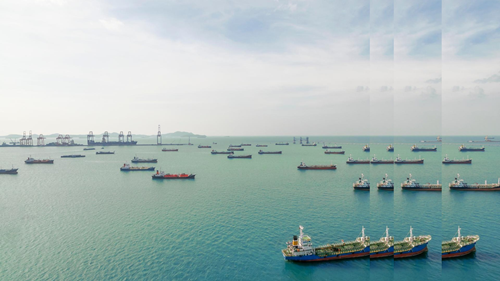Russian Counter Sanctions: Currently No Draft Law for Expropriation of Foreign Companies Assets
The expropriation of the Russian assets of foreign investors is often mentioned when the question of Russia’s response to the economic sanctions imposed by the United States and the EU against Russia is raised, even after the imposition by Russia in August 2014 of a ban on imports of food from the United States and the EU into Russia. However, in contrast to recent news reports, as of now – i.e. 1 December 2014 – no draft law permitting such expropriation has been published or submitted to the State Duma.
1. Announcement of Law on Confiscation of Property belonging to Foreign Companies (by Federation Council member A. Klishas in March 2014)
In March 2014, the Chairman of the Federation Council Committee for Constitutional Legislation, Andrey Klishas, announced in the Russian media the preparation of a draft law on the arrest of property, assets and accounts of European and American companies, in response to the imposition of Western sanctions.[1] If enacted, the proposed law would give the Russian President and the Government authority to freeze the Russian accounts of foreign companies and seize and confiscate their Russian property.
The wording of this initiative was not published and no draft law has been submitted to the State Duma.[2] There has been also no further news on this in the Russian media since the initial announcement. It would therefore appear that this initiative is no longer being pursued.
2. Announcement of Law on Transfer of Foreign Property to Anti Crisis Fund (by State Duma member E. Fedorov in mid October 2014)
In mid October 2014, State Duma member Evgeny Fedorov announced to the Russian media his intention to submit a draft law “On Measures to Protect the Property Rights of the Russian Federation, Citizens of the Russian Federation and Russian Legal Entities against Sanctions of Foreign States”.[3] According to Mr Fedorov, this law, if enacted, would enable the Russian Ministry of Finance, following the sanction based seizure of property of the Russian Federation or Russian persons abroad, to apply to a Russian court for the transfer to a special anti crisis fund supervised by the Russian Government of property located in Russia and belonging to the individuals and legal entities of the relevant foreign state where such sanction based seizure took place.
Again, up to now, the proposed draft law has not been published or submitted to the State Duma.[4] There has also not been any further news on this initiative in the Russian media. It is therefore not possible to evaluate whether this legislative initiative should be taken seriously.
3. Draft amendments to the Law on Compensation of Russian Persons (approved by State Duma in First Reading on 8 October 2014; the so-called “Rotenberg Law”)
There is a draft law that has been published and submitted to the State Duma, which has generated a lot of media coverage in Russia (and abroad), which the media is portraying as a draft law to counter the Western sanctions. So the draft law for the amendment of the Federal Law “On the Compensation for Violating the Right to Court Proceedings within a Reasonable Time Period […]” (the “Draft Amendments”) was submitted to the State Duma on 23 September 2014 and approved in the first reading on 8 October 2014.
The short time period between the submission of the Draft Amendments and their approval in the first reading was explained by the need to protect the rights of Crimean residents which may be affected by politically motivated decisions of Ukrainian courts.[5] However, since in September 2014 the Italian authorities seized the Italian assets of the Russian businessman Arcady Rotenberg, because he is on the US and EU sanctions list, the Draft Amendments have come to be referred to in the Russian media as the “Rotenberg Law”.
In summary, if enacted, the Draft Amendments would provide Russian companies and citizens who have assets seized by a not competent foreign court[6] a right to receive compensation from the Russian state budget. As the payer of the compensation, the Russian Federation would, according to the Draft Amendments, have a right of recourse against the state whose court issued the seizure order, and the Russian court could issue interim orders to protect the Russian Federation’s rights in relation to such right of recourse, which could include the freezing of the assets of the person who brought the claim in the foreign court as security for any award that may be made in favour of the Russian Federation. Such interim orders could not be extended to the Russian assets of individuals or companies of the relevant foreign state generally.
The status of the Draft Amendments is unclear. According to the Russian legislative process, there was a 30 day period for comments on the Draft Amendments to be submitted, before the Draft Amendments should have returned to the State Duma for a second reading. However, the Department of Justice of the Russian Federation sent a letter to the State Duma requesting this 30 day period be prolonged to 30 January 2015 on the basis that the authorities needing sufficient time to consider the Draft Amendments properly and give proper suggestions on how to adapt the Draft Amendments.[7] The State Duma has not replied to this request, nor has it scheduled the Draft Amendments for a second reading in the State Duma, the next stage in the legislative process.[8]
The Draft Amendments are also disputed in Russia. The Supreme Court of the Russian Federation and the Supreme Arbitration Court both commented negatively on the Draft Amendments, raising concerns about shifting the risks related to investments abroad to the Russian taxpayer and about the way the Draft Amendments conflict with international law. This was when they were asked to consider the Draft Amendments prior to the first reading, which is part of the legislative process in Russia.[9] Similar concerns have been raised by the Minister of Economic Development of Russia, Alexei Ulyukayev, at the time of the first reading of the Draft Amendments.[10]
Consequently, it is currently unclear if and to what extent the draft amendments to the Compensation Law will actually enter into force.
[1] http://rbcdaily.ru/society/562949990754594
[2] According to the register of draft laws submitted to the State Duma under http://www.duma.gov.ru/systems/law/.
[3] http://www.interfax.ru/russia/401844
[4] According to the register of draft laws submitted to the State Duma under http://www.duma.gov.ru/systems/law/.
[5] http://top.rbc.ru/politics/21/11/2014/546f1affcbb20f06d3907da2#xtor=AL-[internal_traffic]--[rbc.ru]-[main_body]-[item_6
[6] Based on the current wording of the Draft Amendments it appears that they only apply to decisions of foreign state courts but not to decisions of foreign arbitral tribunals.
[7] http://top.rbc.ru/politics/21/11/2014/546f1affcbb20f06d3907da2#xtor=AL-[internal_traffic]--[rbc.ru]-[main_body]-[item_6
[8] http://asozd2.duma.gov.ru/main.nsf/%28SpravkaNew%29?OpenAgent&RN=607554-6&02
Your contacts
Share
Well
informed
Subscribe to our newsletter now to stay up to date on the latest developments.
Subscribe now







